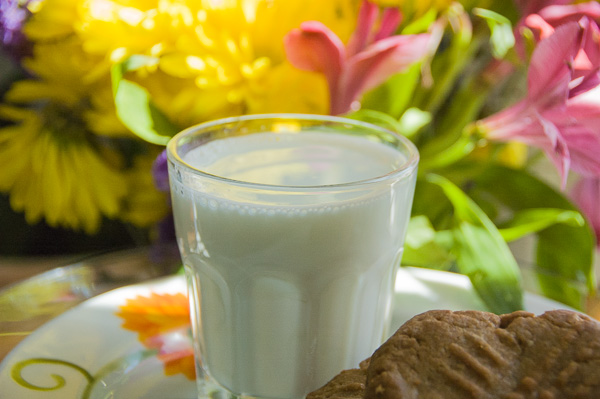
Kids Who Drink Raw Milk Have Fewer Asthma and Allergies
Rates of allergy and asthma have been on the rise in the industrialized world for the past 50 years. It's now so widespread that up to 50 percent of schoolchildren are sensitive to one or more common allergens.
November 12, 2013 | Source: Mercola.com | by Dr. Mercola
For related articles and more information, please visit OCA's Health Issues page, Appetite For a Change page and our Healthy Raw Milk: It's our Right page.
Rates of allergy and asthma have been on the rise in the industrialized world for the past 50 years. It's now so widespread that up to 50 percent of schoolchildren are sensitive to one or more common allergens.
There are many contributing factors to the rise of allergic diseases, but it's becoming increasingly clear that dietary factors may play a role – for better or for worse.
One food that's shown a protective role against such diseases is one that is, unfortunately, typically demonized by health agencies and the media: raw milk.
Raw Milk Drinkers Have Lower Rates of Childhood Allergies and Asthma
School-aged children who drank raw milk were 41 percent less likely to develop asthma and about 50 percent less likely to develop hay fever than children who drank store-bought (pasteurized) milk, according to one study that used data from more than 8,000 children.
While public health agencies are quick to say that there are no nutritional differences between raw and pasteurized milk, this study suggests otherwise. The researchers believed that the beneficial effect may have been due to whey proteins, including bovine serum albumin (BSA) and alpha-lactalbumin, in the raw milk, which were destroyed by the heating process in the pasteurized milk.
While the study didn't find an association between any health outcomes and the bacterial contents of the milk, it did demonstrate noted differences between raw and pasteurized varieties. The researchers explained:
"The results of this large epidemiologic study add to the increasing body of evidence identifying consumption of farm [raw] milk (early in life) to be associated with a reduced risk of childhood asthma and allergies independently of concomitant farm exposures.
The results indicate that the effect is due to the consumption of unheated farm milk. For the first time, associations between objectively measured milk constituents and asthma and atopy could be demonstrated.
…The study allowed validation of parental reports of raw milk consumption against objective measurements of milk heating status and showed very good agreement.
Obviously, parental reports of the raw status of the milk are reliable and not biased by social desirability, as previously speculated.
Under the hygiene hypothesis and given the role of microbial diversity in house dust to explain farm-related reduction of asthma risk, one might assume that a higher microbial load of unboiled farm milk might be responsible for the protective farm milk effect.
Milk is an excellent growth medium, allowing rapid proliferation of microbes. Indeed, the present results showed much higher counts of viable microbes in raw farm milk samples compared with heated farm milk and pasteurized and highly heated shop milk samples, as has been reported by others".
